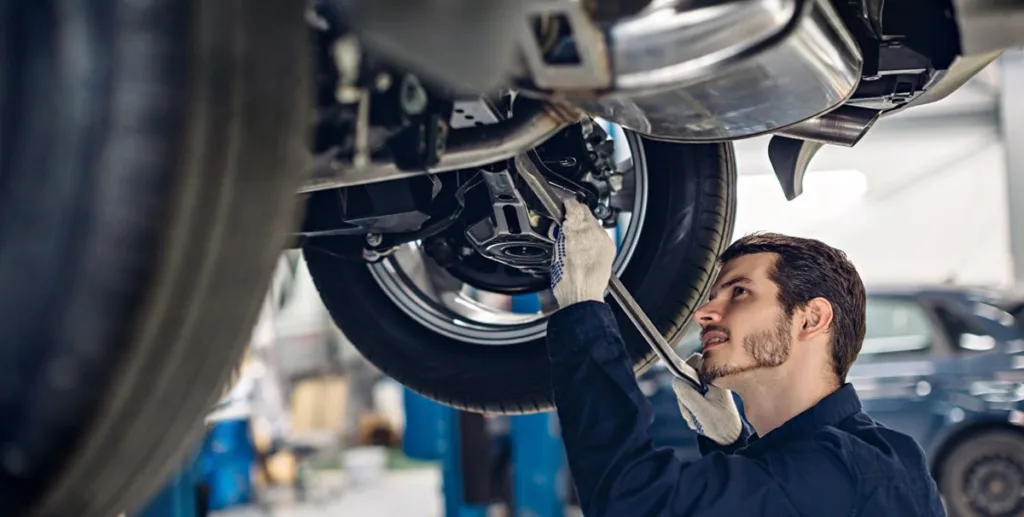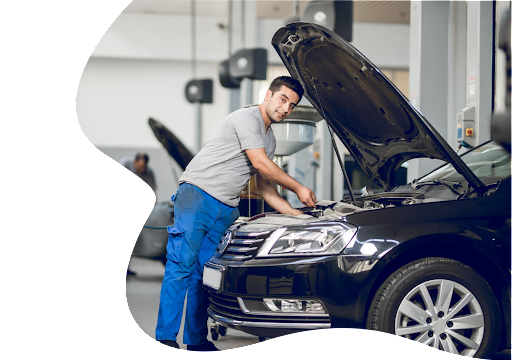All Categories
Featured
Brakes are perhaps the most essential safety attribute of any kind of car. Without reputable brakes, also the most effective auto can come to be a danger on the roadway.
- The Importance of Normal Brake Inspections. Brakes undertake continuous deterioration with every usage, whether you're driving at broadband on the highway or cruising via city streets. In time, brake pads, blades, and other components wear down, which can affect stopping efficiency. Without normal assessments, you might not discover the gradual decline in performance up until it's far too late.
Regular brake inspections enable you to catch concerns early, ensuring that your brakes stay responsive, trustworthy, and secure. Prompt evaluations can additionally conserve you cash by dealing with minor issues prior to they come to be pricey repair services.
- Common Signs That Your Brakes Need Interest. While regular brake examinations are very important, there are some indication you can look out for to know when it's time to set up a check-up:
Squeaking or Grinding Seems: Shrill squeaks or grinding noises when using the brakes are commonly signs that your brake pads are worn and need replacement. Vibration or Pulsation: If you feel vibrations in the steering wheel or the brake pedal, it might show distorted blades, which may need resurfacing or changing. Soft or Spongy Brake Pedal: If the brake pedal really feels unusually soft or squishy, there may be air in the brake lines or a trouble with the master cyndrical tube. Pulling to One Side: If your car pulls to one side while stopping, this could be brought on by irregular brake pad wear or a concern with the brake liquid. Increased Stopping Distance: If it takes longer to stop than normal, it may show that the brake pads are worn, the fluid is low, or the blades are harmed. If you discover any of these signs and symptoms, it's ideal to have your brakes evaluated quickly.

- Secret Components Checked During Brake Inspections. During a brake evaluation, a professional will certainly check a number of crucial components of the braking system to guarantee everything is working correctly. Below are the vital elements involved:
Brake Pads: One of the most usual factor for poor stopping efficiency is damaged brake pads. Checking the thickness of the pads is a concern during every evaluation. Brake Rotors: Rotors should be smooth and without grooves or cracks. Any substantial damages to the rotors can cause endangered braking performance and uneven pad wear. Brake Liquid: Reduced or polluted brake fluid can impair stopping performance. The service technician will certainly inspect the fluid levels and quality and replace it if necessary. Brake Lines and Hoses: Brake lines ought to be without leakages or cracks. Any type of damages to the lines can result in loss of brake fluid, causing brake failure. Brake Calipers: The calipers use pressure to the brake pads. They should be examined for indicators of wear or leaks to guarantee they are working properly. Routinely examining these elements aids keep your brake system in peak condition, allowing you to quit your automobile safely and effectively.
- Exactly how Often Should You Have Your Brakes Examined? The basic suggestion is to have your brakes inspected at the very least annually or every 12,000 miles, depending upon your driving routines. Certain driving conditions may need even more constant assessments:
Rush Hour: If you often drive in stop-and-go website traffic, your brake pads will use down quicker. Mountain Driving: Driving on steep roadways calls for even more regular stopping, which can create your brakes to put on faster. Towing or Hauling Heavy Plenties: If you routinely lug hefty tons, your brakes will certainly experience much more stress and anxiety and need more regular examinations. If you notice any of the indication stated previously, do not wait on the next scheduled inspection-- have your brakes checked right away.
- The Effects of Ignoring Brake Inspections. Disregarding regular brake examinations can lead to severe repercussions. A stopping working brake system might result in reduced stopping power, which boosts your threat of accidents.
In the worst instance, driving with damaged brakes can result in complete brake failing, putting you and various other motorists in danger. Normal brake inspections are a little financial investment that can conserve your life and protect against pricey repair services.
- Conclusion: Keep Safe with Routine Brake Inspections. Brakes are not something you wish to take chances with. A trusted stopping system is important for secure driving, and normal brake assessments are an easy method to ensure that your car stops when you need it most. By remaining on top of brake maintenance, expecting cautioning indications, and having your brakes checked at the recommended intervals, you'll shield both your vehicle and your security.
Do not wait up until your brakes start to fall short-- timetable routine brake examinations and maintain your automobile in ideal problem for many years to come.
Latest Posts
Find Out Reduce Expenses on Car Maintenance with Montclare Auto Repair’s Limited-Time Deals
Uncover Oil Changes & More: Complete Services Guide from Montclare Auto Repair
Unlock Your Financial Partner at WyHy – Top Benefits for Your Money Goals
More
Latest Posts
Find Out Reduce Expenses on Car Maintenance with Montclare Auto Repair’s Limited-Time Deals
Uncover Oil Changes & More: Complete Services Guide from Montclare Auto Repair
Unlock Your Financial Partner at WyHy – Top Benefits for Your Money Goals
